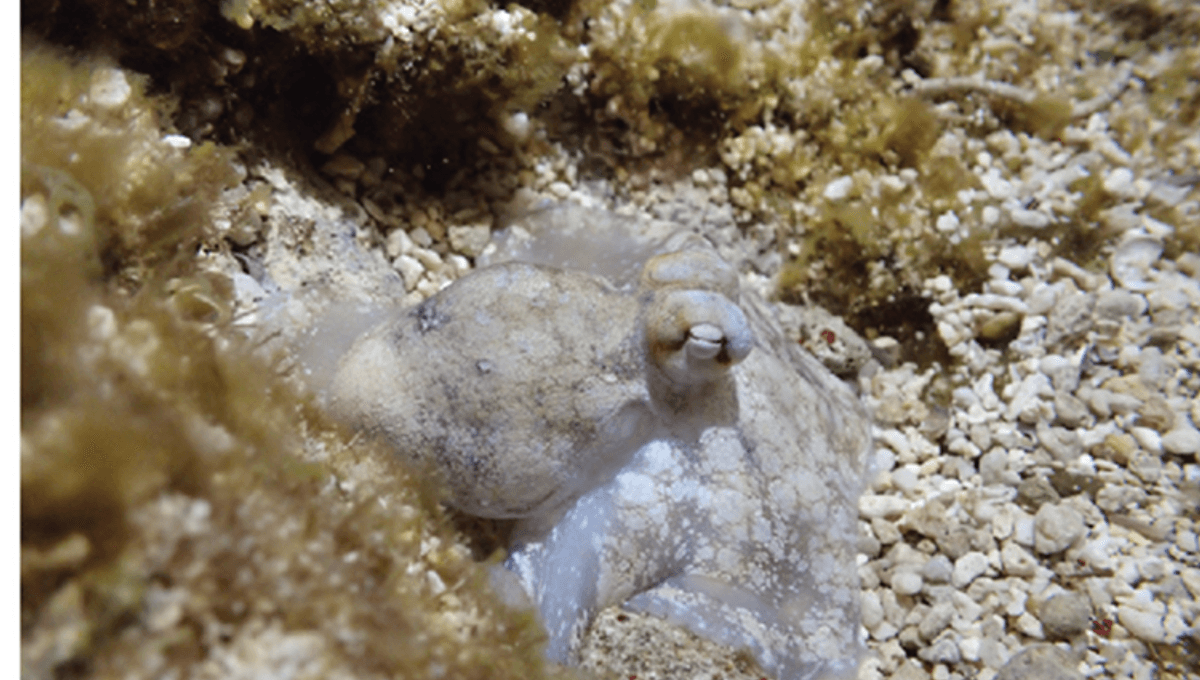
When you’re having a snooze, you could have more in common with an octopus than you might think, according to a new study. Researchers observed the brain activity and skin patterning of octopuses cycling between their two sleep states, “active” and “quiet” sleep, finding that activity during active sleep resembled activity seen when awake, similar to REM sleep in humans and other animals.
“All animals seem to show some form of sleep, even simple animals like jellyfish and fruit flies. But for a long time, only vertebrates were known to cycle between two different sleep stages,” senior author, Professor Sam Reiter of the Okinawa Institute of Science and Technology (OIST), explained in a statement.
“The fact that two-stage sleep has independently evolved in distantly related creatures, like octopuses, which have large but completely different brain structures from vertebrates, suggests that possessing an active, wake-like stage may be a general feature of complex cognition,” added co-author Dr Leenoy Meshulam of the University of Washington.
Adult octopuses of the species Octopus laqueus were collected from tide pools in Okinawa, Japan, and given two weeks to acclimatize to their new tanks before observations began. During the day, the nocturnal species had “a flat resting posture and a uniformly white skin pattern, previously described hallmarks of octopus quiet sleep”, but about once an hour the snoozing cephalopods were observed to undergo “roughly 1-minute periods of rapid transitions through a series of skin patterns, accompanied by pronounced eye and body movements and increased breathing rate and arhythmicity,” the authors write in the paper.
Electrophysiological recordings of the octopuses’ central brains revealed that the activity of local field potentials (electrical signals detected in the space around neurons) during active sleep was similar to activity while awake, with the authors adding that the strongest activity was “seen in the superior frontal and vertical lobes, anatomically connected regions associated with learning and memory function.”
To make sure the octopuses were actually asleep during these periods, the researchers tested their responses to physical stimuli, finding that they needed stronger stimulation in both quiet and active sleep than when they were awake to prompt a reaction.
When bouts of active sleep were disturbed using a paintbrush, the next bout of active sleep occurred about 22 minutes sooner than when the creatures were left to slumber uninterrupted. “This compensatory behavior nails down the active stage as being an essential stage of sleep that is needed for octopuses to properly function,” co-first author Aditi Pophale, a PhD student at OIST, explained.
The authors of the new study theorize that the creatures could be refining their skin pattern control, or perhaps re-activating neural activity associated with their experiences while awake. “We currently don’t know which of these explanations, if any, could be correct. We are very interested in investigating further,” Professor Reiter said.
The study is published in the journal Nature.
Source Link: Octopuses Have An "Active Sleep" Phase Resembling REM Sleep